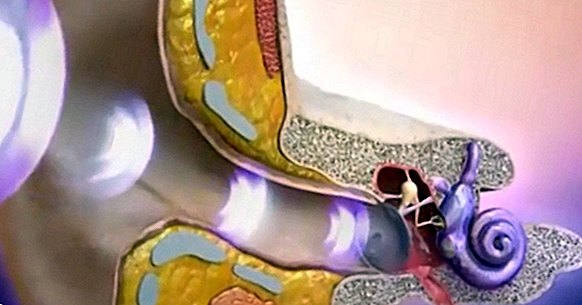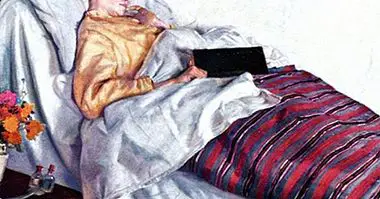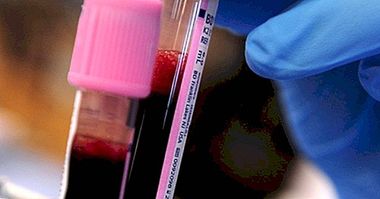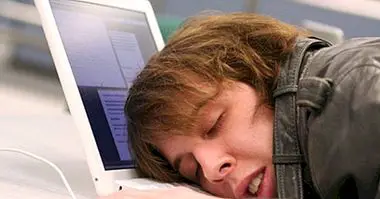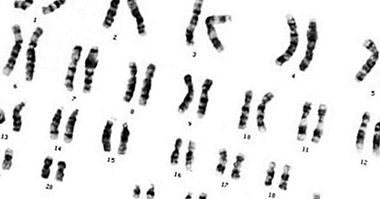Neurotology: what it is and in what disorders it intervenes
The human body is an organism made up of a large number of systems, whose coordinated management allows our correct functioning and we are able to survive and adapt to the environment. Among them we can find the nervous system, thanks to which it is possible the aforementioned coordination and management, or systems as relevant as the auditory, which in addition to the perception of sounds also has an effect on our orientation, balance and postural maintenance .
However, there are several problems that can appear in these systems, which can have a significant impact on our quality of life. Fortunately, there are medical specialties focused on the relationship between the nervous and auditory-vestibular systems that allow detecting and treating the different disorders and problems that may arise, highlighting the relatively recent neurotology .
- Related article: "Neuropsychology: what is it and what is its object of study?"
What is neurotology?
It is understood by neurotology or otoneurology is one of the branches of medicine which specializes in the study of the relationships between the auditory system and the nervous system. Is considered a subspecialization of the specialty of otorhinolaryngology , since most of us are dealing with problems that originate or affect the inner ear. However, it could also be a very specific subspecialty of neurology, since it is the connection to the nervous system that is explored.
In this way, neurotology is mainly responsible for the investigation, diagnosis and treatment of alterations in which there is an alteration in the interaction between both systems. More specifically, the study of the human body from this subspecialization of medicine focuses on the inner ear, the vestibular system, the skull, and the facial, auditory, vestibular, vagus, spinal, low, and hypoglossal nerves, among others. .
These specialists usually perform assessments at the otological and neurological level to define and find the causes of disorders linked to dizziness, float sensations and hearing loss. In general, these are auditory problems and are related to balance or body position derived from a neurological affectation.
Required training
This medical field already possessed a corpus of powerful theoretical knowledge since the 20th century, but it has not been until a few decades ago that it has established itself as a subspecialty. To become a neuro-otologist or otoneurologist we must have knowledge of both otolaryngology and neurology.
In order to achieve this degree, it will first be necessary to have completed a medical degree, after which it is necessary to specialize in otolaryngology (although the possibility of arriving from neurology is not ruled out) and later to subspecialize in this field. We are facing a type of prolonged and very exhaustive training with regard to a very specific part of the organism .
Although it is already a subspecialization within the neurotology, it can also be found a more specific sub-branch: the otoneurosurgery. And it is possible that it is necessary to perform some type of surgical intervention, requiring great preparation for it.
Problems and diseases that are usually found
Neurotology is a medical discipline that deals with very different problems that can generate different levels of affectation and functional limitation to the people who suffer them, in some cases even putting their lives at risk. Within the set of these disorders, the following stand out.
1. Hearing loss and deafness
We call hypoacusis a a loss of hearing that, although it is not total, supposes a loss of the functionality and the capacity of the person in his day to day. The deafness as such would be the total loss of hearing.
In both cases we are facing something distressing and that generates limitations in daily life, whose causes should be carefully analyzed. An example of a disease that causes hearing loss is otosclerosis. Also, probably one of the most well-known types of intervention that is performed by neurotology in this sense is the cochlear implant.
2. Vertigo
Probably one of the problems neurologists most often see is vertigo. It is understood as such the symptom (since it is not a disorder in itself but it would be indicating some type of affectation or alteration of the vestibular system) characterized by the presence of dizziness, balance problems and orientation , discomfort, feeling that the world rat around us or even fainting.
3.Tinnitus and tinnitus
Frequent perception of buzzing or whistling sounds from the ear that often hinder hearing is often a matter of consultation, which neurologists can examine to determine its causes.
4. Ménière's disease
Ménière's disease is an alteration characterized by balance and hearing problems which are produced by alterations in the labyrinth . It is common to suffer from dizziness, tinnitus (noises such as continuous roar) and feelings of discomfort, the subject can reach deafness. The concrete causes are unknown today and there is no cure as such, but it can be treated in such a way that it is controlled.
5. Facial paralysis
Although something different from the previous ones, it is possible to meet people who suffer from some type of facial paralysis associated with the injury or impingement of one of the cranial nerves , nerves that are also studied from neurotology.
- Related article: "Cranial pairs: the 12 nerves that leave the brain"
6. Tumors
It is also possible that different types of tumors of different degrees appear in the auditory pathways or in the nerves that connect these to the brain, or that some type of tumor presses the nerve pathways of these areas. From neurotology it is also possible to help detect these neoplasms. An example is the acoustic neuroma.
7. Malformations
In addition to all the above, we can also find the presence of different types of malformation, both congenital and acquired (for example, accident product).
Through neurotheology it is possible to observe the level of involvement of the auditory and vestibular systems and even correct by surgery some affectations and malformations that hinder its proper functioning.
Bibliographic references
- Carmona, S. (2015). The current otoneurology. An Ibero-American perspective. Mexican Journal of Communication, Audiology, Otoneurology and Phoniatrics, 4 (1).

